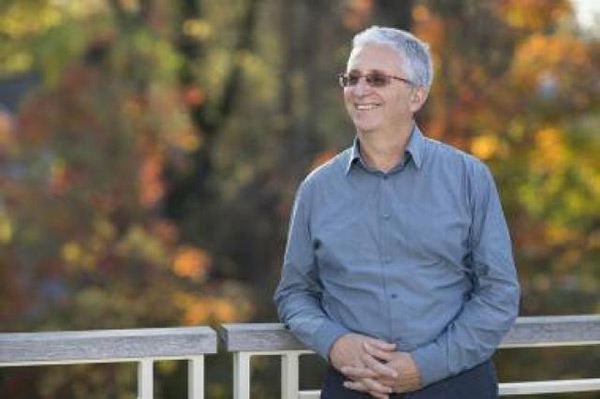BOONE—Professor Alon Confino of Ben Gurion University of the Negev, Israel, and the University of Virginia will present the talk “A World Without Jews: The Nazi Imagination from Persecution to Genocide” Oct. 21 at Appalachian State University. His program will begin at 7 p.m. in Belk Library and Information Commons room 114. The lecture is free of charge.
Confino is one of the most innovative and vibrant scholars in the fields of modern German history, Holocaust and memory studies. Broadly interested in the theory and practice of writing history and a wide array of topics, ranging from memory and culture to nationhood and forced migration, Confino has been at the forefront of historical research for more than two decades.
Confino’s talk will be based on his latest work, “A World Without Jews” (Yale University Press 2014). He begins his explorations with a simple question: Why did the Nazis burn the Hebrew Bible? Confino portrays the widespread burning of the Hebrew Bible during Kristallnacht in November 1938 as an intentional and public act that constituted anything but an aberration. He argues that these practices of Nazis and other Germans should be seen as part of a large-scale project of “fixing the past” by ending the imagined Jewish “authority over a moral ancient past” and historical origins enshrined in the Bible. Steeped in histories of emotions and culture, Confino’s multifaceted answer amounts to an insightful rereading of key issues in the study of Nazism and the Holocaust.
Confino is the author of several key books and edited collections including, “The Nation as a Local Metaphor: Württemberg, Imperial Germany, and National Memory, 1871-1918” (University of North Carolina Press 1997) and “Germany As a Culture of Remembrance: Promises and Limits of Writing History” (University of North Carolina Press 2006). More recently, he has moved into the field of Holocaust studies, providing fresh insights as evidenced in his study “Foundational Pasts: The Holocaust As Historical Understanding” (Cambridge University Press 2012).
His presentation is presented by Appalachian’s Center for Judaic, Holocaust, and Peace Studies. Additional sponsors are the Department of History, Department of Philosophy and Religion, the Global Studies Program, Office of International Education and Development, the Department of Languages, Literatures, and Cultures, the Temple of the High Country, and Appalachian’s Hillel chapter.
For more information, call the center at 828-262-2311 or email [email protected].
About Appalachian State University
As a premier public institution, Appalachian State University prepares students to lead purposeful lives. App State is one of 17 campuses in the University of North Carolina System, with a national reputation for innovative teaching and opening access to a high-quality, cost-effective education. The university enrolls more than 21,000 students, has a low student-to-faculty ratio and offers more than 150 undergraduate and 80 graduate majors at its Boone and Hickory campuses and through App State Online. Learn more at https://www.appstate.edu.
What do you think?
Share your feedback on this story.




![How NCInnovation Is Rethinking Economic Development in North Carolina [faculty featured]](/_images/_posts/2026/02/rethinking-economic-development-600x400.jpg)







